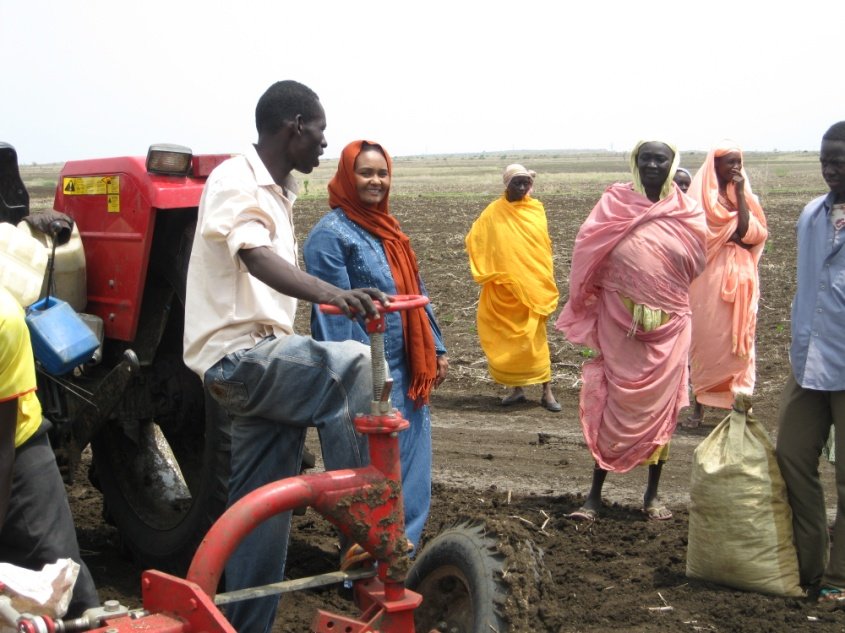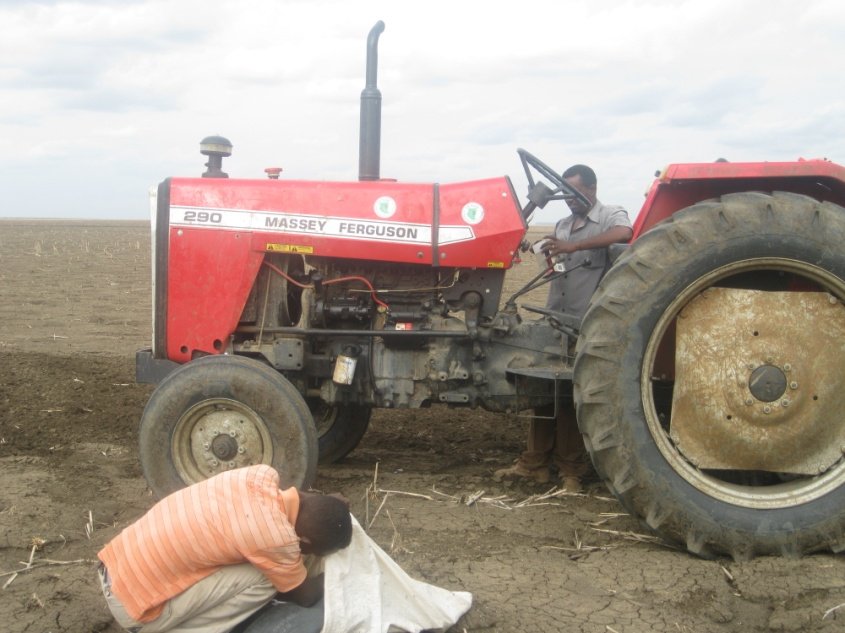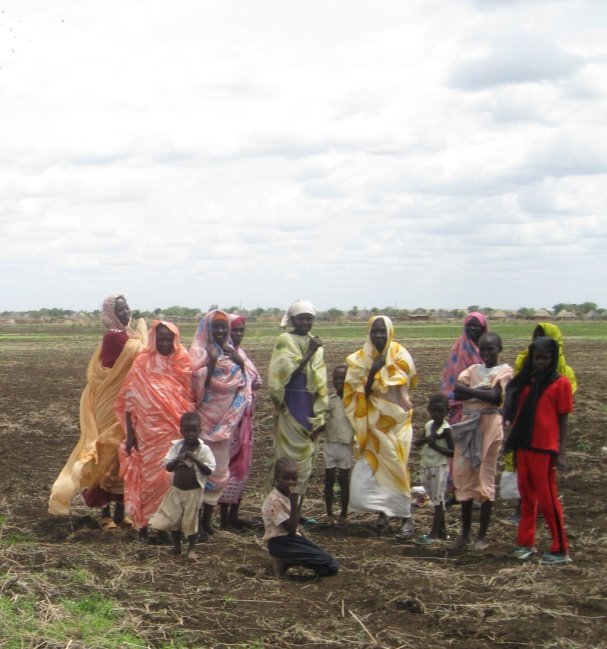![Fatima Ahmed of Zenab for Women in Development]()
Fatima Ahmed of Zenab for Women in Development
In December, Fatima Ahmed, President of MADRE’s partner organization Zenab for Women in Development and founder of Sudan’s first women farmers union, attended the international conferences on climate change in Durban, South Africa. We interviewed her on the effects of climate change on women and on her community, how women are at the forefront of the fight against the climate crisis and what needs to be done at the conferences to secure meaningful solutions. Read her responses below:
How has climate change impacted your community?
Climate change has had a big impact on my community in Gadaref State, Sudan, which is the number one major production area of the staple foods for Sudan. It produces 75% of the sorghum and other cash crops like sesame, gum arabic, ground nut and millet. For years now, there have been fluctuations in the amount of precipitation we receive, and drought makes it very hard for the small scale farmers, including the women farmers, to grow their crops.
The price of the sorghum has tripled in the last couple of years and is still going up. This has contributed to extreme poverty and malnutrition, not only in Gadaref State but in the whole Sudan. There have also been floods in some areas around the rivers and the tributaries of the Blue Nile.
Also there has been a shift in the pattern of the seasons. Some areas like Khartoum, which is more at the North, now receive more rain than before, which affects the poor people who live in shanty houses who are not protected from this much rain. This current pattern and Mediterranean climate is very unusual for Sudan.
How are women particularly affected by climate change?
Women are more affected by these changes because they can’t produce enough food for their families, it is harder to find clean drinking water and the women who are pastoralists must travel long distances looking for water and grass for their animals. The overall outcome is that women become more vulnerable and live under extreme poverty.
How are you helping communities adapt to the impacts of climate change?
To adapt we are working with women farmers to learn new ways of planting, including using better tools for their land preparation. These tools go deep into the soil so the little precipitation we receive can be conserved for some time. We are also training women farmers to use more varied and improved seeds which better withstand drought, and also teaching them to learn simple techniques of water harvest, using crop rotation and weeding in a better way. We also encourage the women to plant trees as much as they can in their villages and not to cut the trees. We have dug water wells for women and their families in poor communities.
How have women been leaders in this work?
Women are very committed to finding solutions to this problem; this is why they are eager to get informed and to follow recommendations. They are trying very hard to cope with this problem and to adapt but they need much help in many ways.
Moving forward, what do you hope to see accomplished at the UN Climate Change Conference? In other words, what do you think needs to be done by policy makers to protect women and their families from the climate crisis?
The Cancun agreement provided real opportunities to advance global cooperation in adaptation, reforestation, climate change finance and technology transfer. If all opportunities within the Cancun Agreement are fully grasped, and parties take logical next steps, COP 17 could lay the ground work for a fair, ambitious and legally binding global climate change regime. If instead there is delay and lack of ambition, then we risk losing the chance to keep global warming below 1.5 degrees Celsius and the world will face catastrophe. Poor communities and countries are already feeling the devastating impacts of the changing climate; without adequate mitigation, finance, technology and capacity building, their homes and livelihoods will be destroyed.
Additional Resources:
![Share on Twitter]()
![Share on Facebook]()


